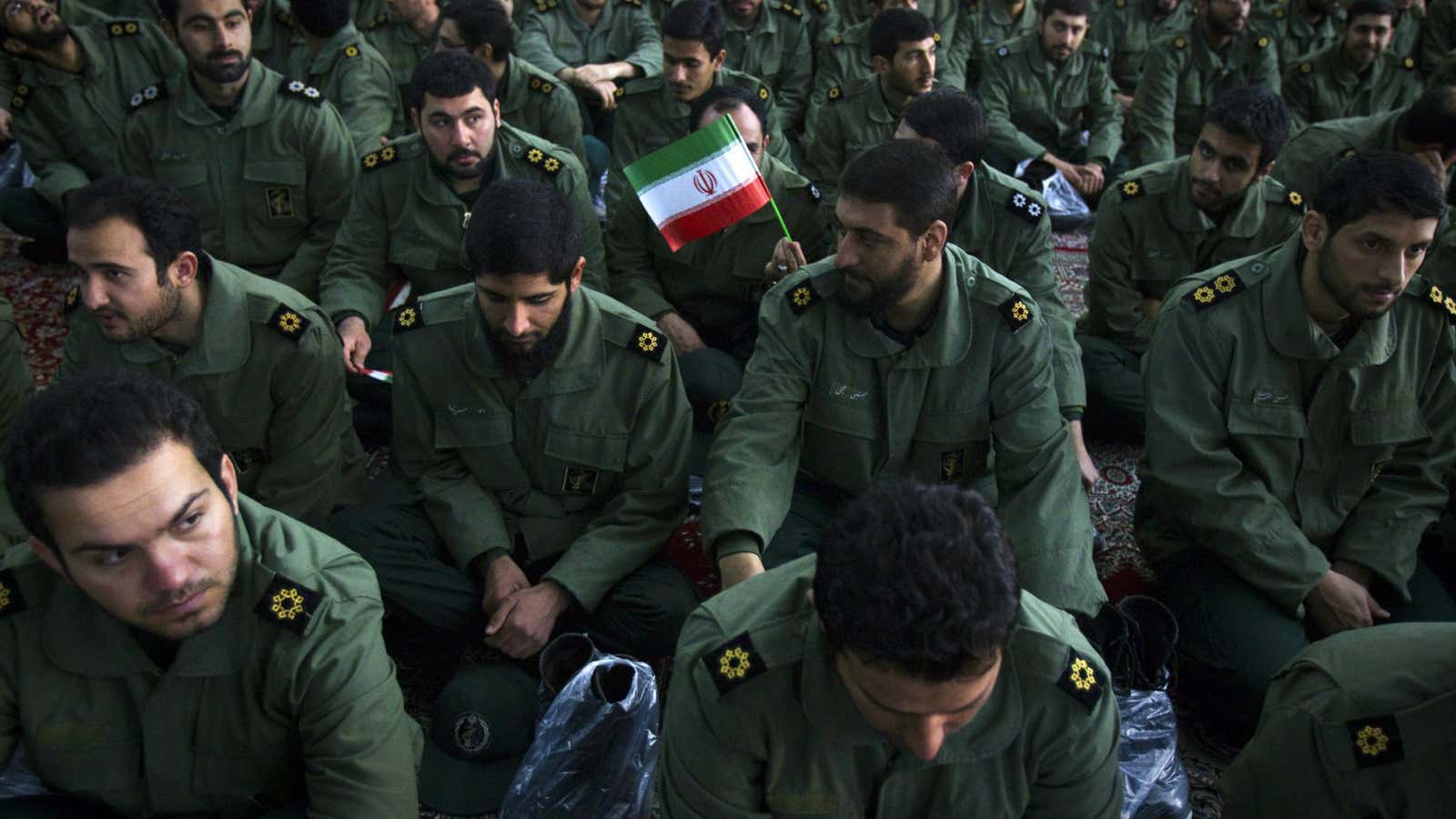The only reason to watch Binyamin Netanyahu speak to the US Congress today is for the mildly amusing spectacle of a room full of American politicians trying to avoid looking bored. It is unlikely that Israel’s prime minister will say anything he hasn’t said over and over and over again—most recently, at the AIPAC conference just yesterday.
Netanyahu will argue that a nuclear deal with Iran is a terrible idea, one that endangers Israel. Why? Because, he will say, Iran cannot be trusted to keep its end of the bargain. It is already too close to possessing the essential ingredients of a nuclear weapon, and lifting sanctions now would allow it to push its nefarious project to the finish line. Perhaps he will point to the announcement by the UN nuclear watchdog, that Tehran continues to be evasive about important details of its nuclear plans. (Alas, he has long since dropped the more entertaining aspects of his canned speech, such as the comic-book bomb diagram he displayed at the UN in 2012.)
But Netanyahu’s Ahab-like fixation with his white whale—Iran’s nuclear program—draws attention away from the many other ways that the regime in Tehran represents a clear and present danger to the world. He is right that sanctions relief will empower that regime, but it’s hardly a given that the billions of dollars unlocked ($1.6 billion a month in oil income, by some estimates) will be poured into a clandestine program to build The Bomb.
Much more likely, the money will accelerate and amplify the many conventional (as in non-nuclear) programs Iran conducts in the open—supporting despots, exporting terrorism, destabilizing the Middle East. And, yes, threatening Israel.
A nuke deal would be cheered loudest in Damascus, where Iran’s pet dictator, Bashar al-Assad, could use some shiny new weapons in the brutal struggle to regain control over his war-ravaged country. Iran is already pouring billions of dollars into propping Assad up; imagine if it had billions more to play with.
Among the many groups rooting for the US and other world powers to lift the sanctions on Iran are the likes of Hezbollah in Lebanon, Hamas in Gaza, the Houthi militia of Yemen, and the myriad of Shia militias in Iraq. All these groups will receive cuts of the windfall that will come from sanctions relief. More funding for Hezbollah and Hamas is especially worrisome for Netanyahu’s countrymen, since both groups are sworn to destroy Israel.
Greater Iranian support for Shia militias in Iraq will undoubtedly lead to the slaughter of larger numbers of Sunnis. In Yemen, it will undermine any hope that the Houthis will make a fair deal with other groups—and prolong political instability in a country where Al Qaeda’s most active franchise is growing in strength and ambition.
Nor is Iran’s export of terrorism restricted to its immediate neighborhood. In recent years, Iranians have been arrested in Azerbaijan and Bangkok, accused of trying to kill Israelis. Only last year, Tehran’s proxy, Hezbollah, was implicated in a bomb plot in the Thai capital. And last month, the Argentine prosecutor investigating the 1994 bombing of a Jewish center in Buenos Aires died under mysterious circumstances after claiming that top Argentine officials covered up the role of Iran in the bombing. An Iran unhindered by sanctions can mount more, better-funded plots in far-flung places.
Iran has also developed the ability to mount cyber-mayhem, says the US director of national intelligence, James Clapper. He fingered Tehran for the 2014 attack on Las Vegas Sands, the gambling giant owned by the Israel supporter Sheldon Adelson. Imagine how much more damage Iran’s cyber-warriors could do with more money and easier access to the latest computer technology.
So, yes—when Netanyahu declares today, for the umpteenth time, that Iran is a danger to Israel and the world, he will be right. But he will only be telling half the story.
